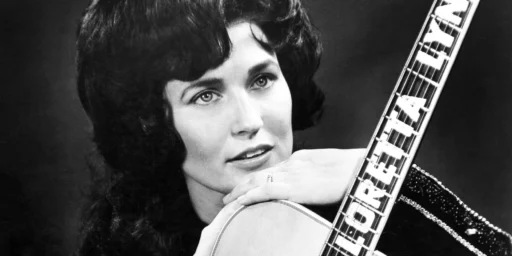If Dirt Were Dollars
Will Collier takes Don Henley to task for saying artists need governmental intervention to protect them theft of their intellectual property and the consolidation of the industry into a handful of congolomerates.
AAAHHHHNT! Wrong answer, Don! Would you care to try ‘Singers Who Don’t Know How Pretentious They Are’ for $500?
Look, Henley’s right about a few things here. The music industry, as we’ve known it for all of our lives, is dying. Their economic model doesn’t work any more, their product (at least the product the major labels are pushing) has fatal quality control problems (i.e., it’s mostly horrible), and radio sucks like an Electrolux.
But the solution is not to try and get the government to magically turn the clock back to 1977. A regulatory approacy to popular entertainment wouldn’t work even if Henley could convince the Feds to try it.
Don, old man, you and your pals are going to have to give up the crutch of the record companies and the radio stations and learn to be entrepreneurs. I know you don’t like that idea; it was much easier when somebody from Asylum was there to pay the studio bills and ship out the albums, but those days are going the way of vinyl.
What’s the evidence for this? Are there a lot of garage bands making it big in the music industry? Don’t all of the artists that are atop the Billboard charts have record labels behind them? (Although none with Asylum.)
Stephen Green also weighed in on Henley’s piece:
Henley is right — to a point. The problem isn’t the artists or the internet or the fans. Or even mergers. The problem is records aren’t worth buying anymore.
When was the last time — other than Ken Layne & The Corvids — you willingly plunked down full retail price for a new album by a new artist and enjoyed even a simple majority of the tracks?
When was the last time you even sat down and just listened to an entire new album, instead of using it for background music while doing something else?
No matter how many good singles a new artist puts out, for me they remain suspect. I’ve just bought too many records now with two good cuts and a lot of bad filler.
My guess, Steve old buddy, is the problem is less with the decreasing quality of records than the increasing number of years since our initial birthdays. I’ve got something like 400 CDs and an equivalent number of prerecorded cassettes in my collection. I bought almost all of them between 1982 and 1995 or so. This despite the fact that the cost of an average album has plumetted in real terms and my income has skyrocketed. I own no albums by an artist with a single currently in the top 30 and, sadly, have never heard of a few of them.
There’s also the little matter of the ability to get free mp3s through such file “sharing” platforms as Napster, AudioGalaxy, and Kazaa that we enjoyed for several years before the RIAA started suing everyone and making people reluctant to put files up for transfer. Much like the ability to get lots of information for free on the Internet has made people reluctant to pay for it–getting indignant about having to give so much as thirty seconds worth of demographic information–we now have the idea that it’s Don Henley’s fault that he can’t figure out how to make a living selling one album and having everyone else share electronic copies of it.






The problem with the “it’s the Internet” argument is that record sales were flat or in decline before file-sharing and mp3s became massively popular. As early as 1995 RIAA was admitting that the consumer was losing interest in prerecorded music and trying to figure out ways to get their attention again–and that’s long before file-sharing would’ve been a significant issue.
My own feeling (backed by no solid evidence except my own buying habits and that of my friends) is that the “file-sharing effect” is encouraging people to look at a wider range of artists, and perhaps even encouraging sales by allowing people to “listen before you buy”. (And the reverse is true as well: “gee, this sounds like crap, I don’t want it.”)
I buy a lot of CDs and music–but it’s not mainstream stuff, and a much larger percentage of my purchases are indeed from “garage band” labels and independents than before. (In my most recent buying spree I’d say about 60% of the CDs I bought were from independents.) I also routinely end up buying stuff I simply can’t find in the US.
None of my friends (even in the 18-25 group) consider downloading low-quality mp3s to be a real substitute for owning a CD. Maybe they’re just special and unique, I don’t know.
I also should point out that I don’t swap music online, and I have purchased CDs for every piece of music I listen to. It’s just far easier than it used to be to find these little one-off bands and foreign artists, thanks to the ‘net–and since I can usually listen to samples of the music online, it’s far more likely I’ll buy it.
I wholeheartedly agree that the quality of the “popular artists” (the ones being shoved down everyone’s throats) has gone way downhill in recent years, and that’s also a contributing factor.
I won’t say that the ‘net hasn’t had its negative effects. But it’s far more complex than “everyone just downloads it for free, wah”.
Finally, I think the unwillingness to fill out “a 30-second profile” is simply the sheer number of them. Just how many times do I have to give my birthday, place of residence, and how many kids I don’t have before I’m permitted to say “enough is enough!”
“gee, this sounds like crap, I don’t want it.”
Sad to say, I’ve reached the point where I almost always assume it’s crap — music, books, software — unless I’ve seen evidence otherwise.
But that may just be my age talking: “Life is too short (and getting shorter every day) to waste it reading/listening to crap.”
My guess…is the problem is less with the decreasing quality of records than the increasing number of years since our initial birthdays.
True, but what I find amazing is that some of the best (and popular) music today is very reminiscent of music from 25 or 30 years ago.
I own no albums by an artist with a single currently in the top 30…
Yeah, but if you take it out to the top 40, there’s one artist some of whose music I own: Carlos Santana, which just goes to prove your point.
JAJ,
Yep. A lot of it is just that the stuff we like usually harkens back to what we liked in our mid-20s.
I predicted a while back a “musical history gap.”
(bad language warning below)
For many years the music we heard in restaurants, stores and other public places were top 40 hits from 15ish+ years before. The Beatles were all the rage in the 80’s and now the 80’s music is played today. That made many songs part of our collective musical heritage even if you were not in high school when it was popular.
But how on earth are people going to sit in a sandwich shop 15 years from now and listen to “I want to Fuck your mother!”
Most parents I know do not let their kids buy pop music today. Certainly that hurts business.
True. But there are certainly 25-30 songs from the last few years that are sufficiently tame to make that cut. Train’s “Drops of Jupiter” comes to mind, for example. Most of the stuff that will survive will be from the AOR/Adult Contemporary charts.
I think there are a couple of factors at work here. First, the industry has always been skewed to the benefit of the label, not the artist. Artists have generally fared better than songwriters, but their contracts often include “payback” clauses that prohibit them from collecting a dime until the record label has recouped all costs associated with the production and promotion of an album. Songwriter royalties are established by law, and are rediculously low, so they are hit hardest by file-sharing, since they get a smaller cut of the financial pie to begin with.
Secondly, and perhaps more importantly, most record labels in any genre, and the radio stations on which they depend, are subsidiaries of the same three or four major media conglomerates, and this has a tendency to homogenize the product. Regardless of genre, the target demographic is the same, so the product starts to all look and sound alike — or at least remarkably similar. (For example, many top 10 country songs would probably do well in the pop market, and vice versa. They are no longer recognizably “country” except to the extent that the artists and fan base identify themselves as such.)
The artist and songwriter response in the industry has been to turn to independent labels and self-production, with varying degrees of success. On the one hand, it is extremely difficult to promote yourself when you’re up against big label marketing and touring budgets. On the other hand, the Internet makes it possible to reach larger numbers of people, and once an artist establishes a loyal local fan base, regional radio stations are more likely to pick up their work, which can start the ball rolling.
The bottom line is that Henley is right about the industry and wrong about the solution. I think the answer will come in greater numbers of artists and songwriters operating independently, and the demise of big-name labels as the arbiter of musical culture.